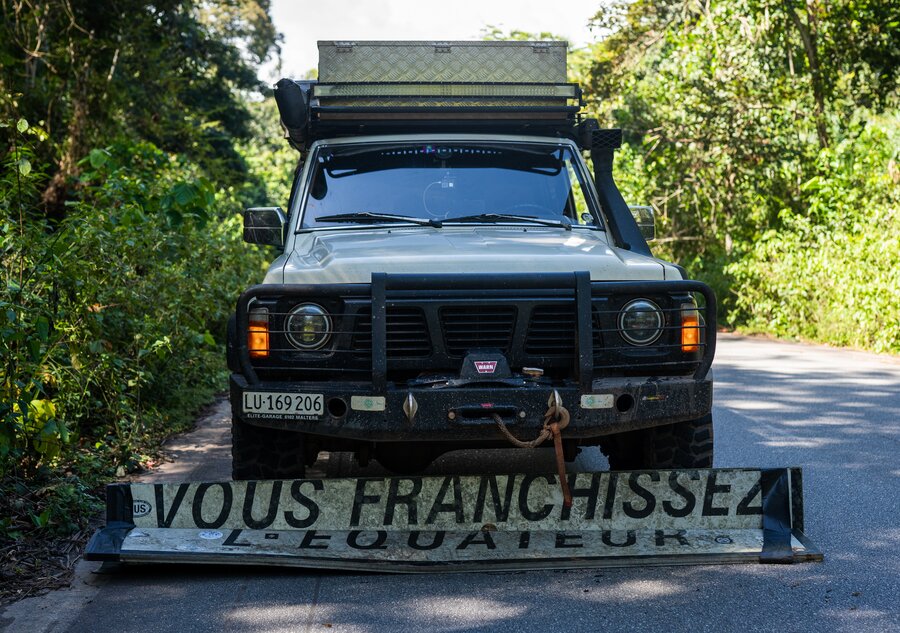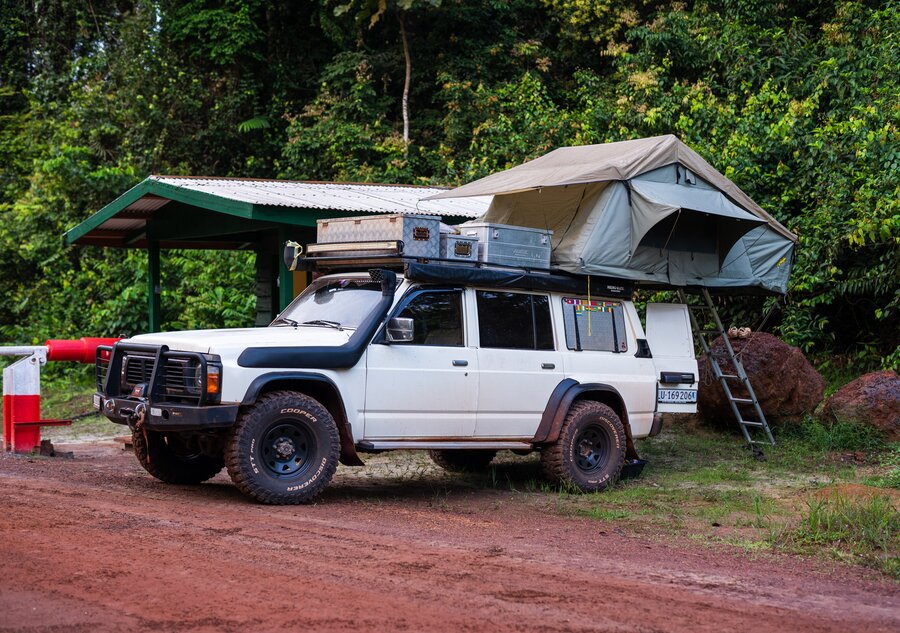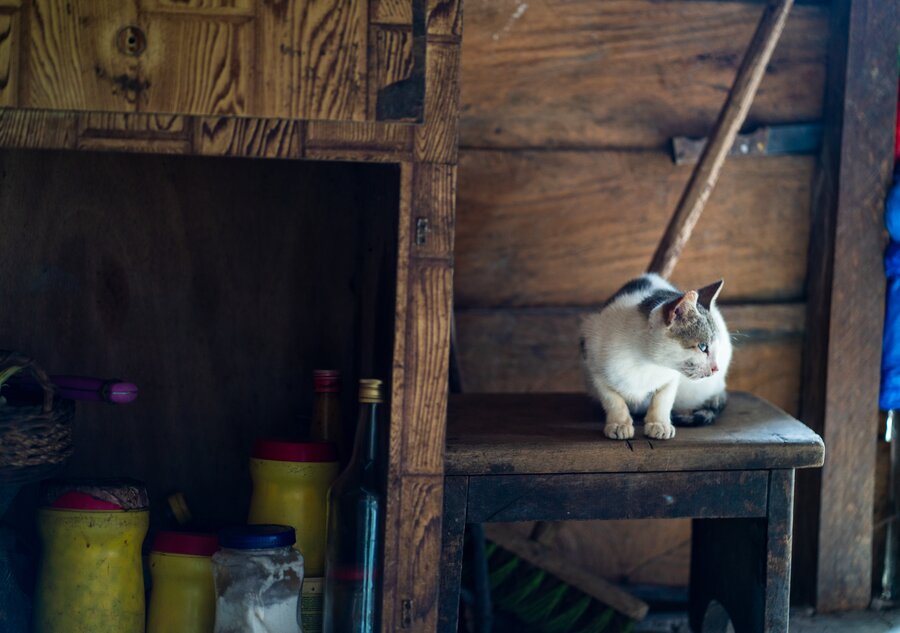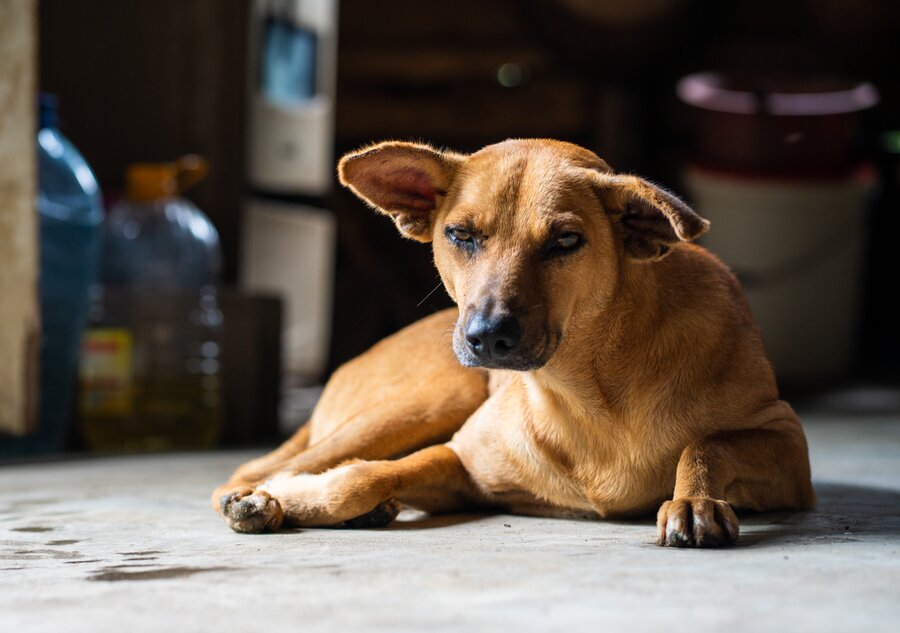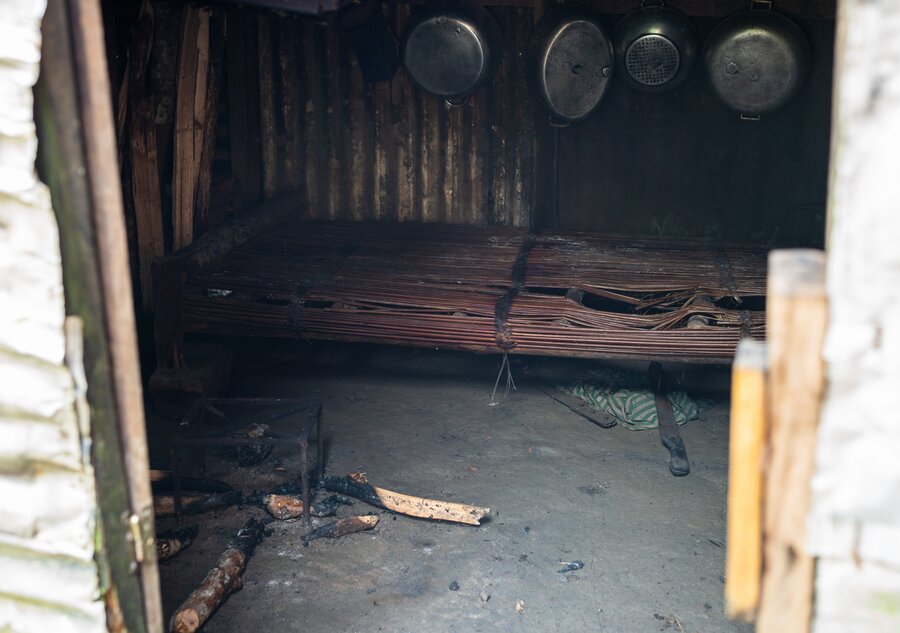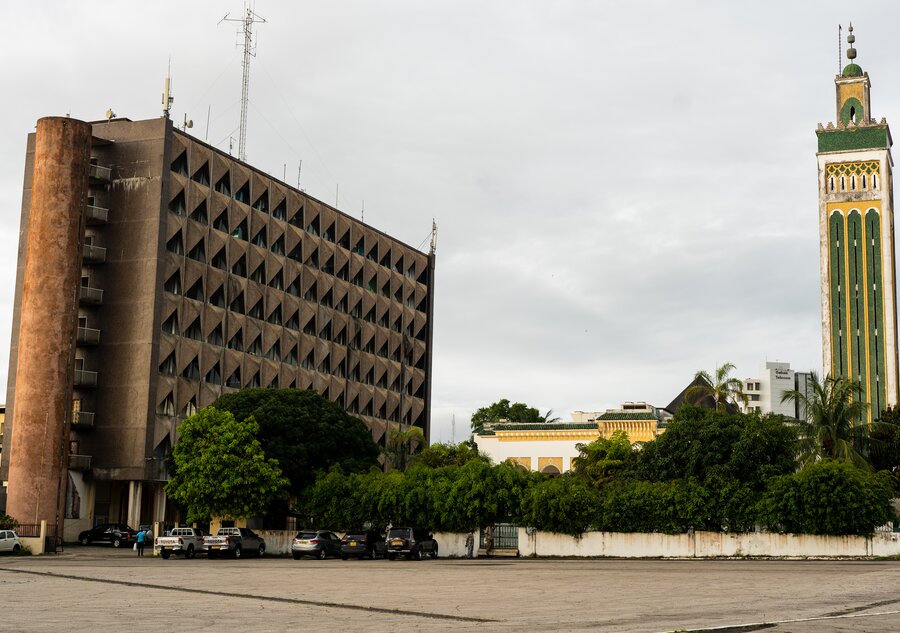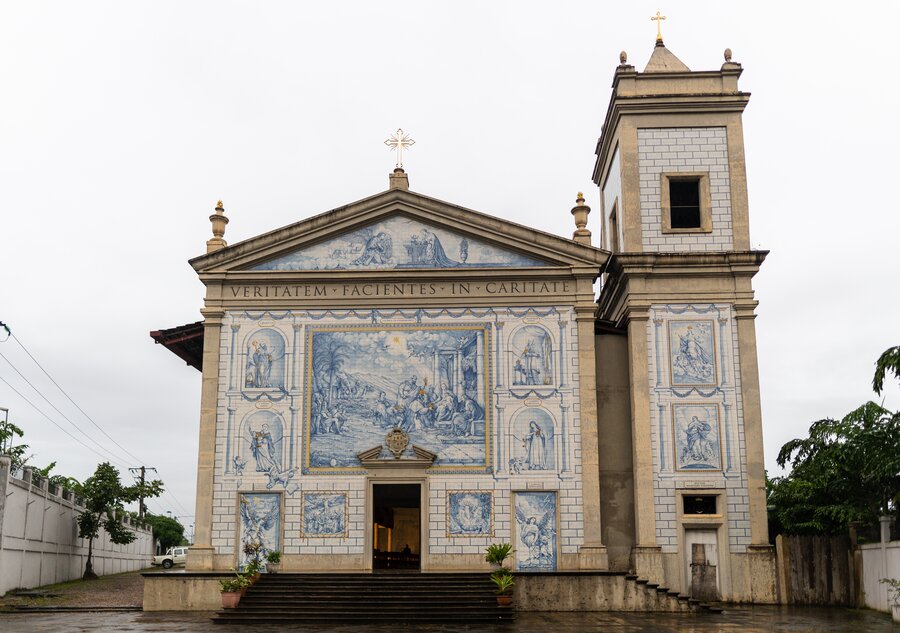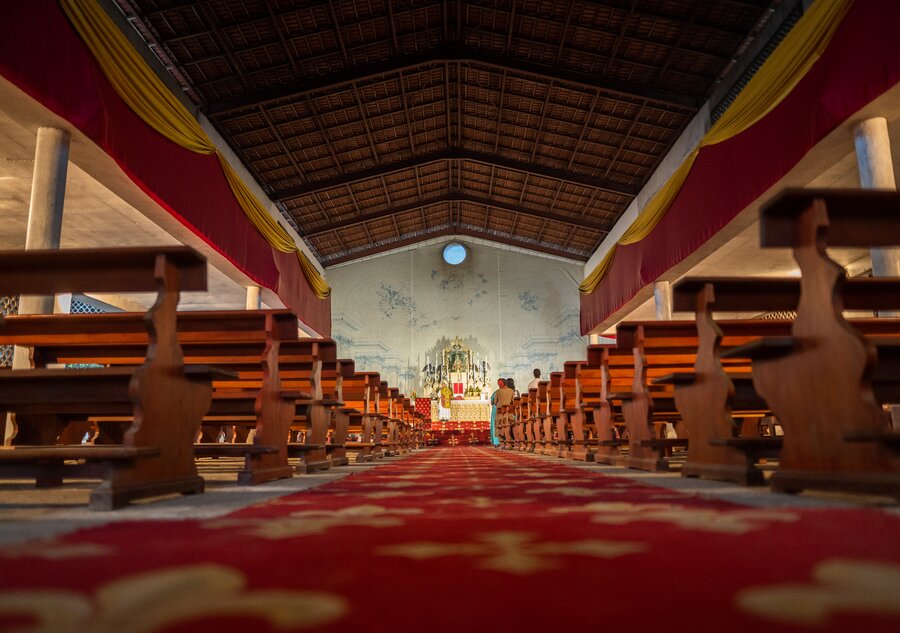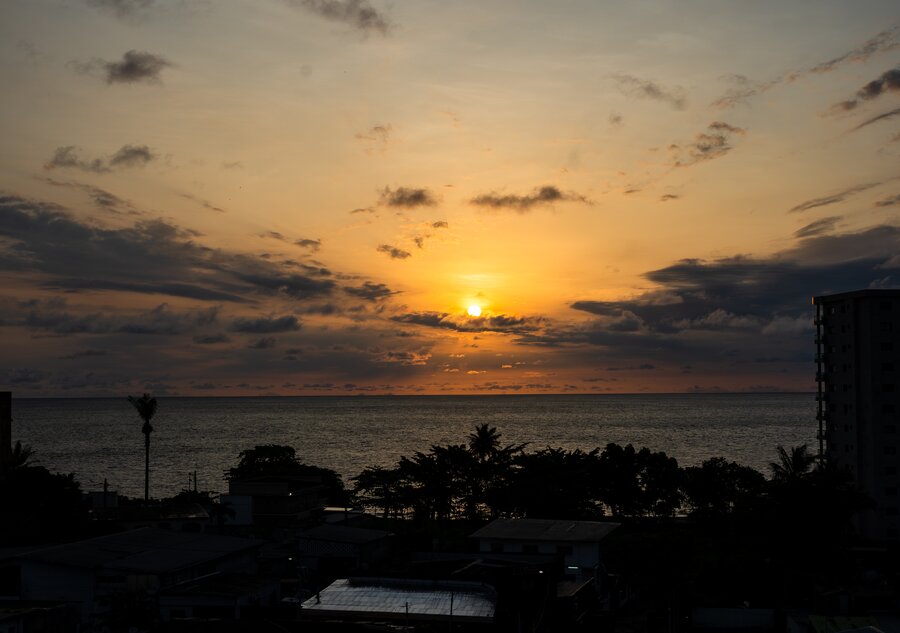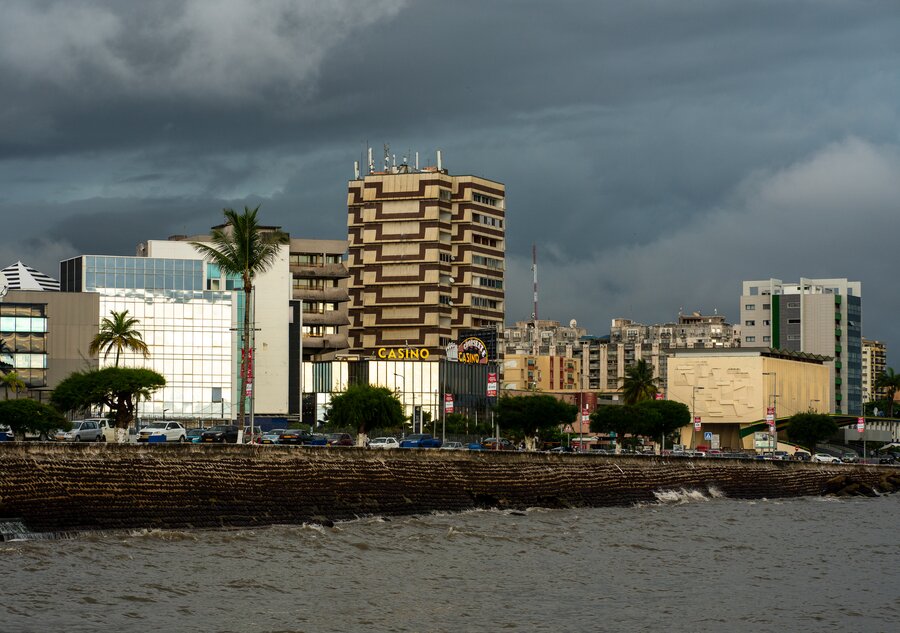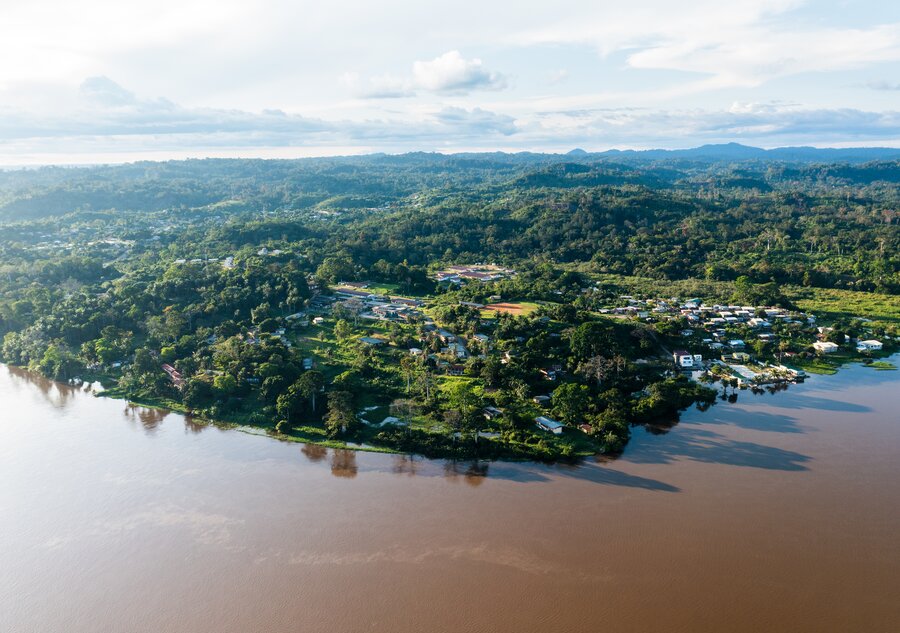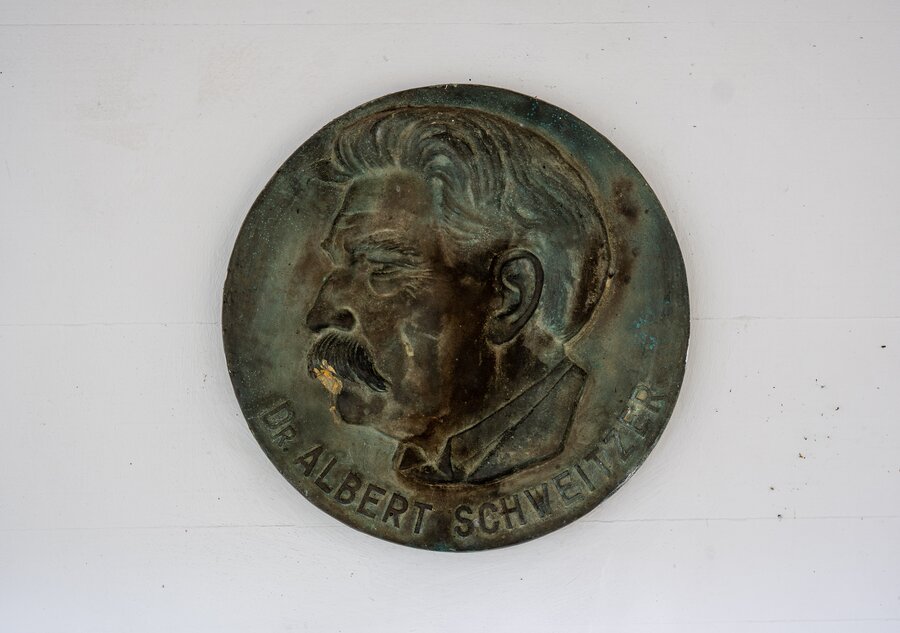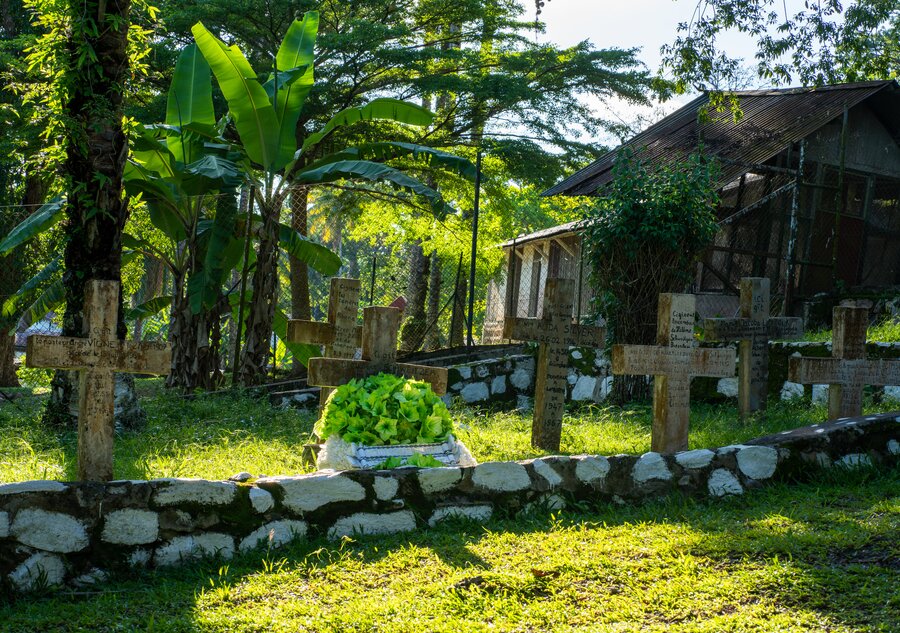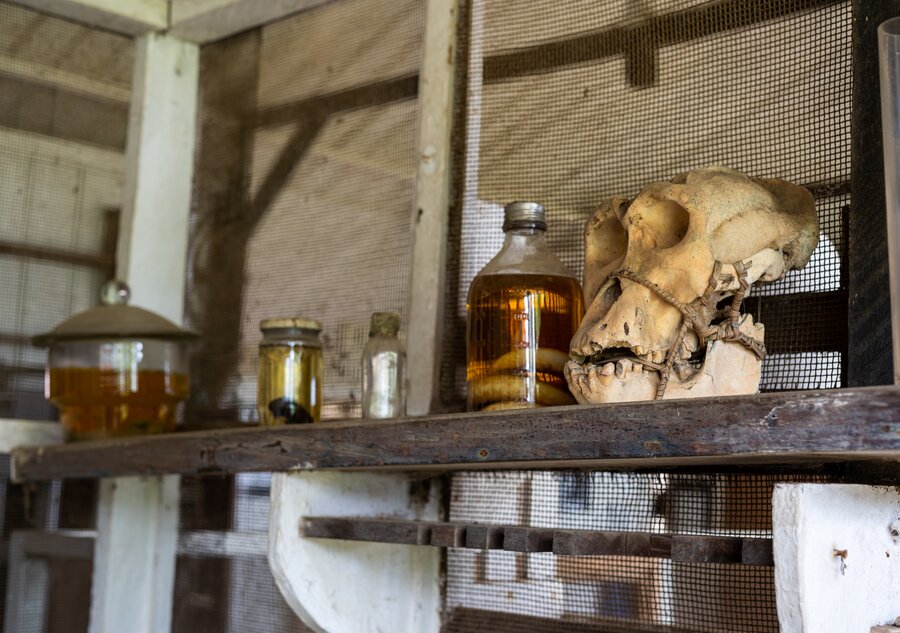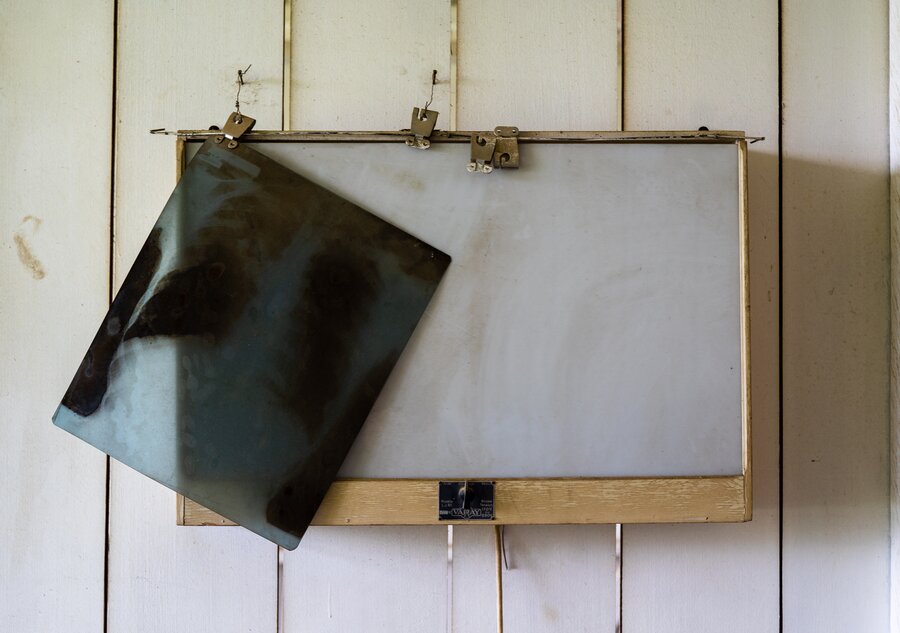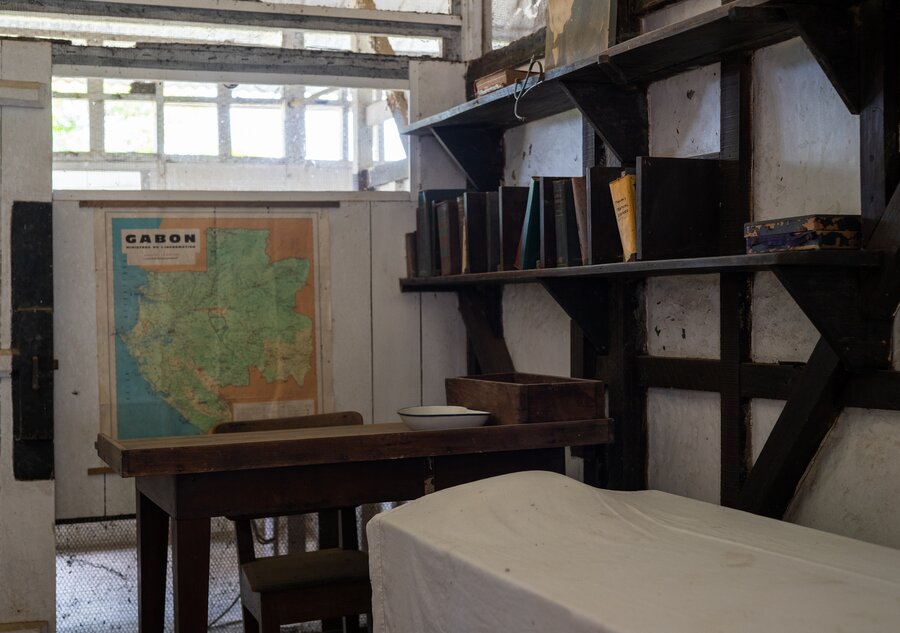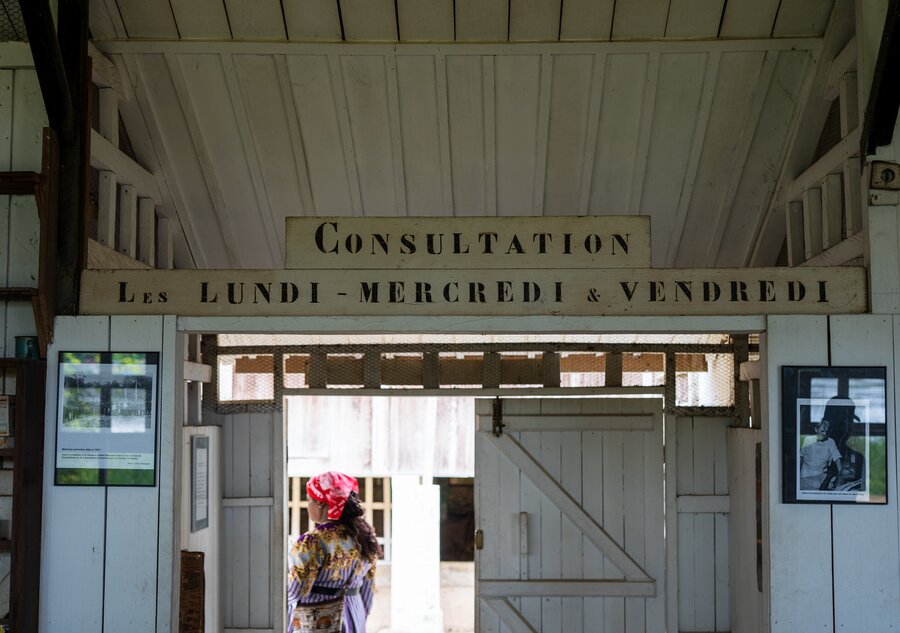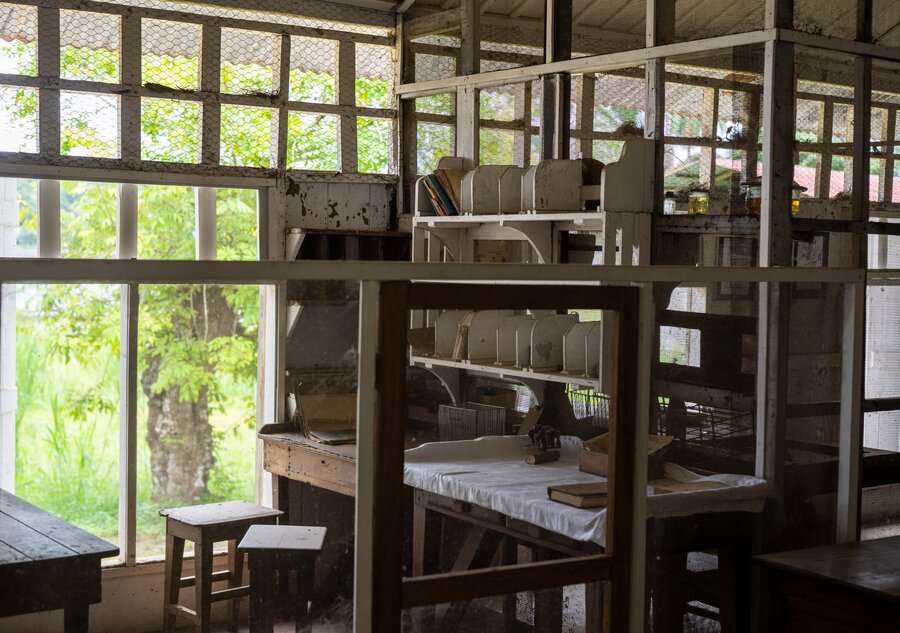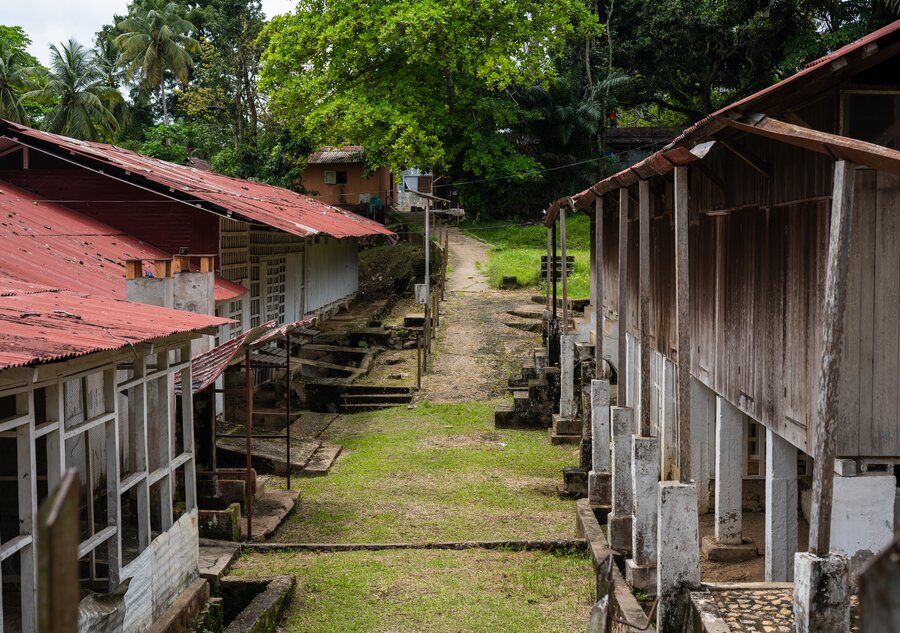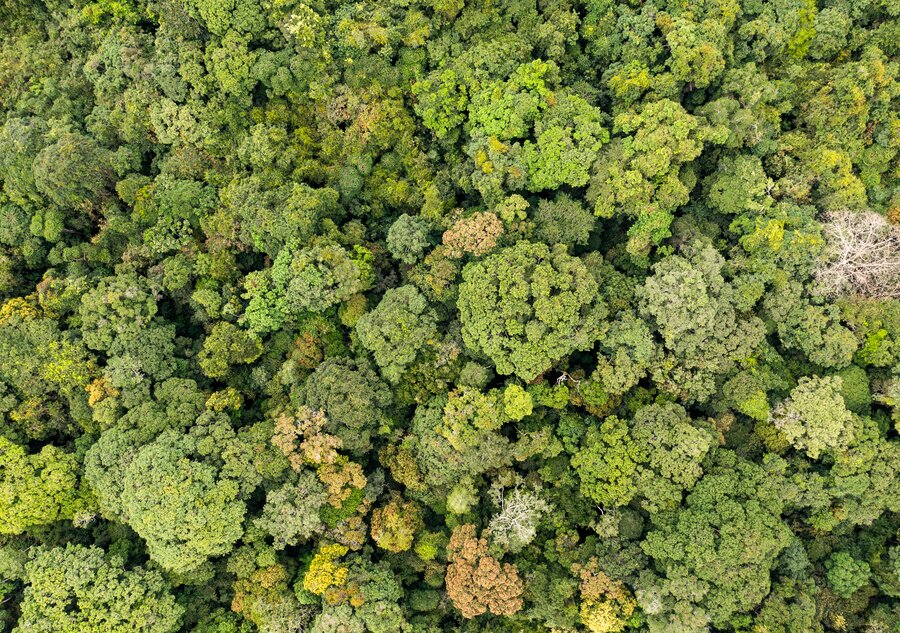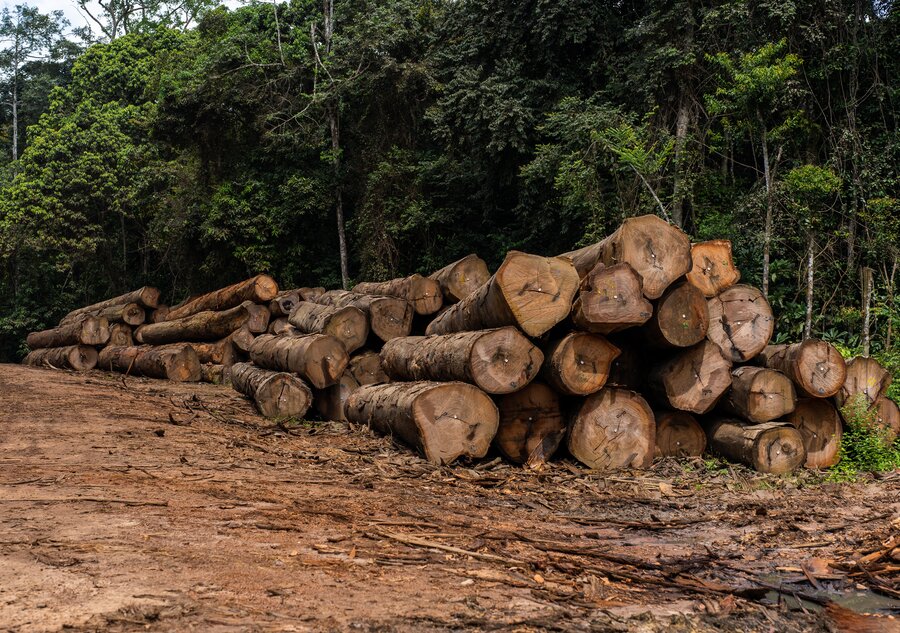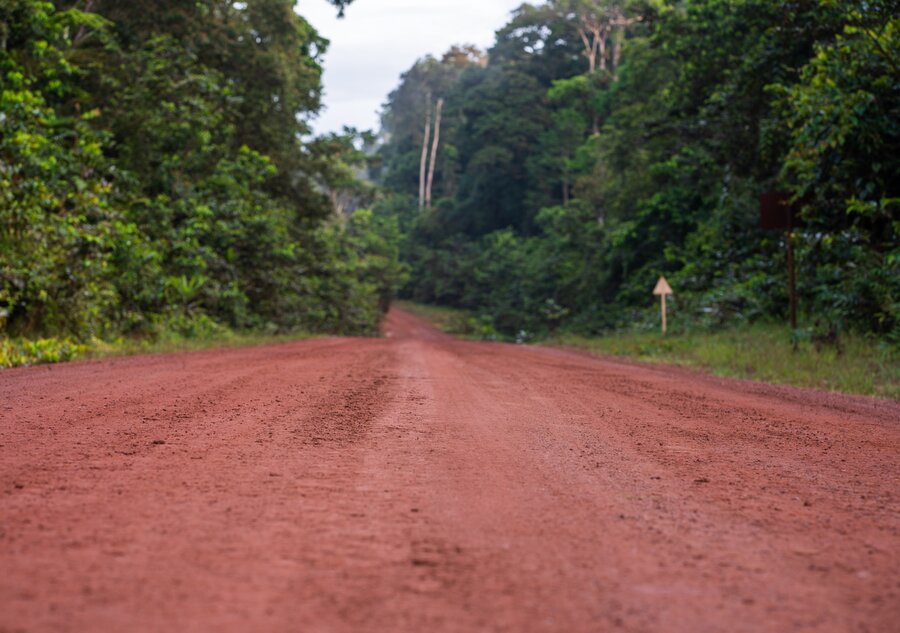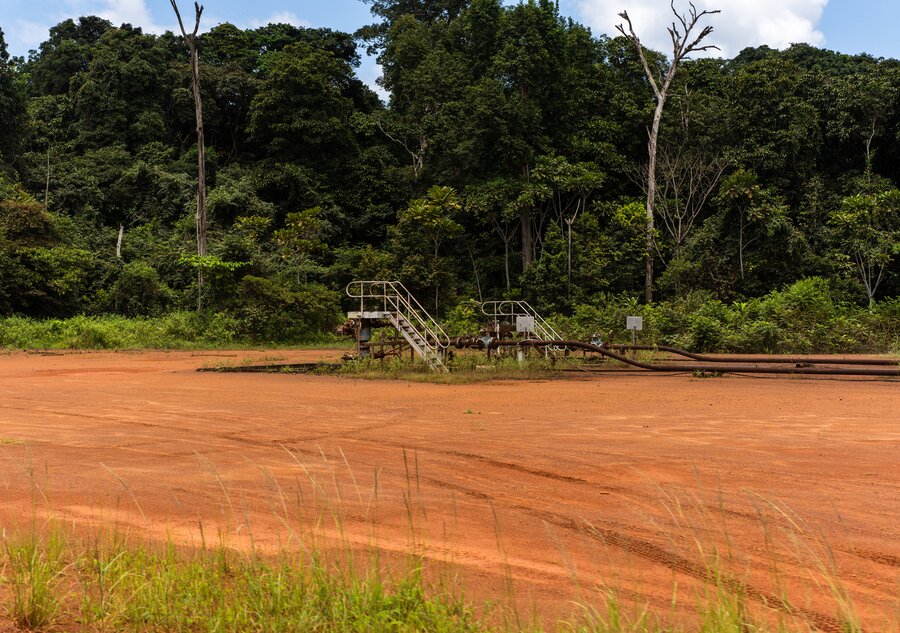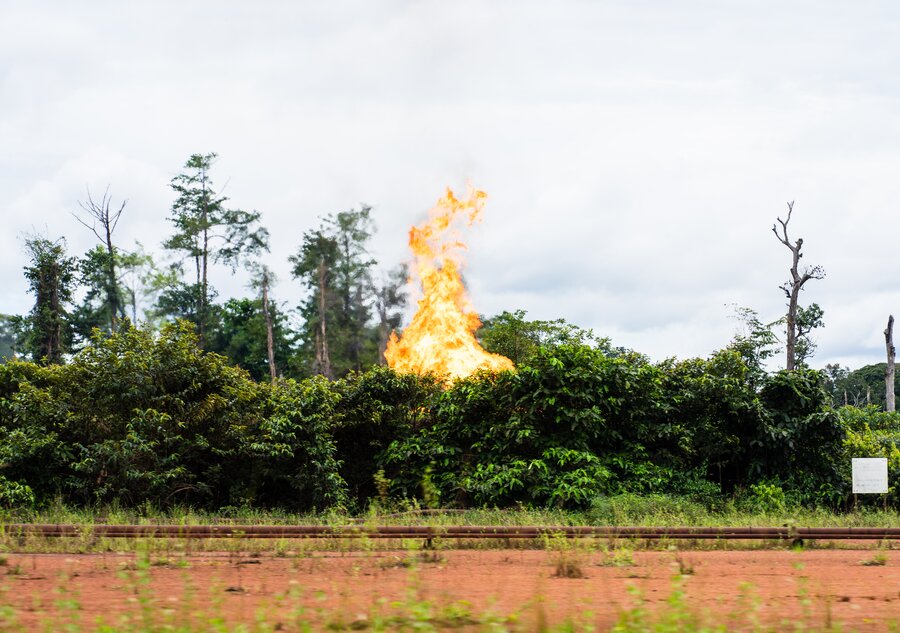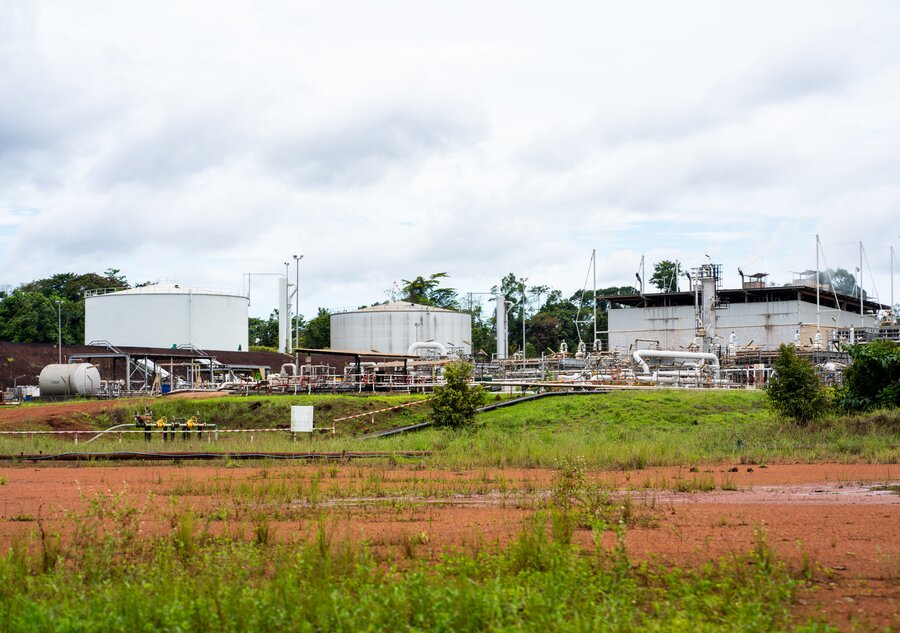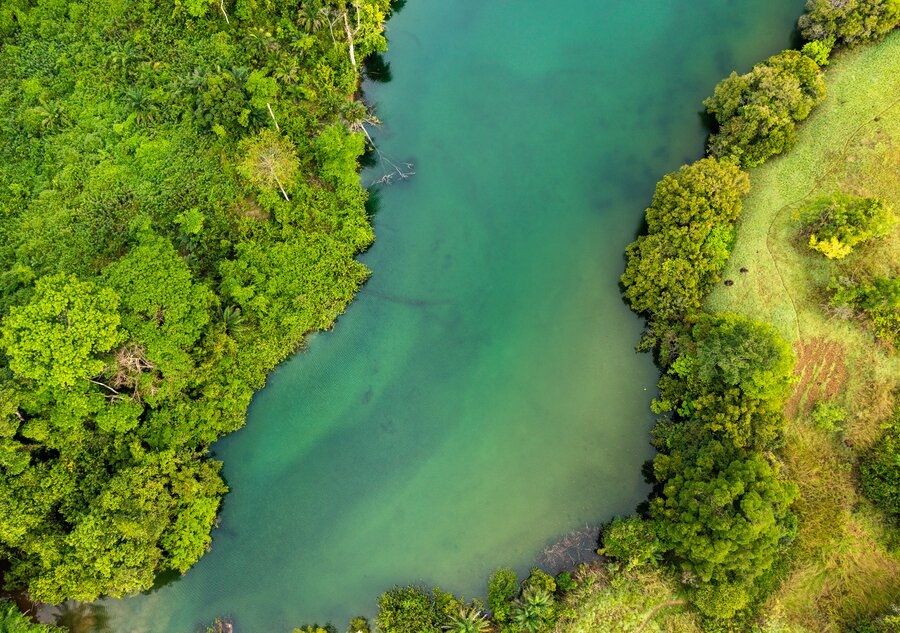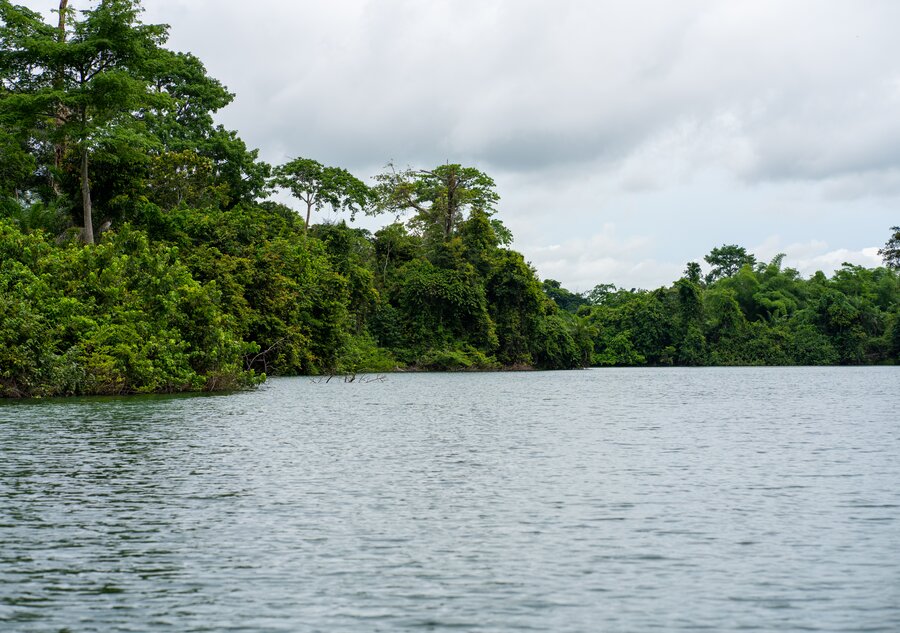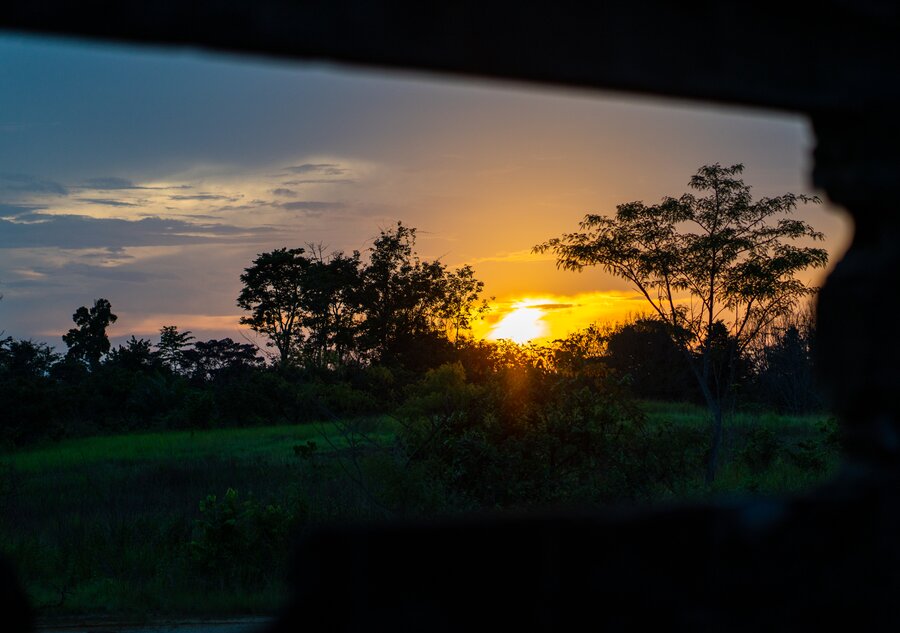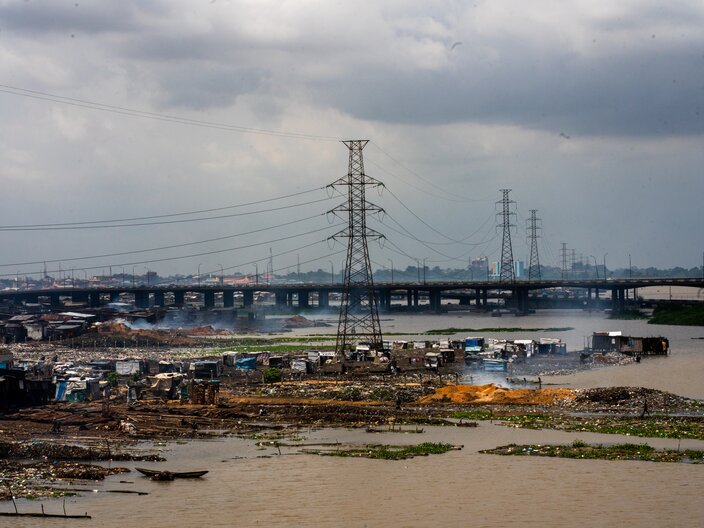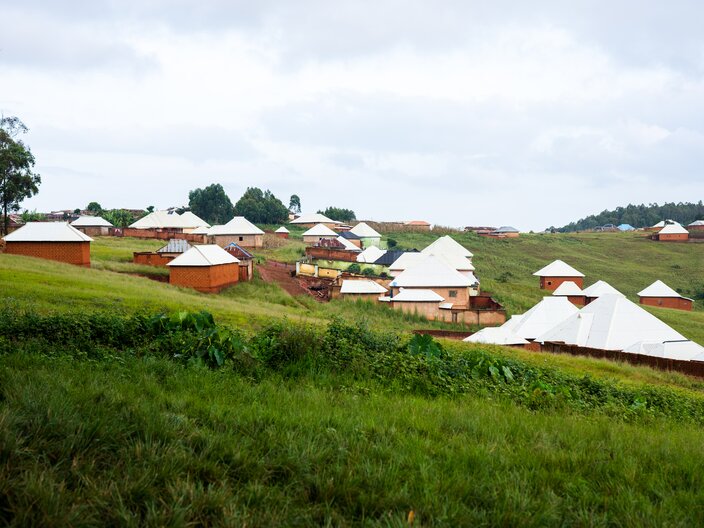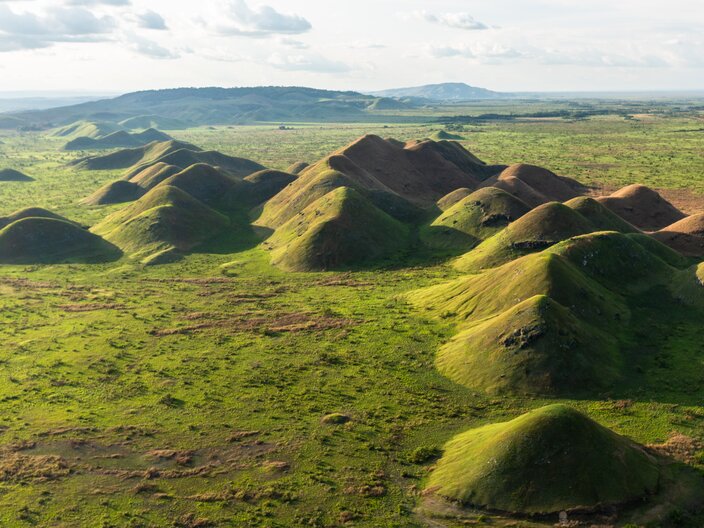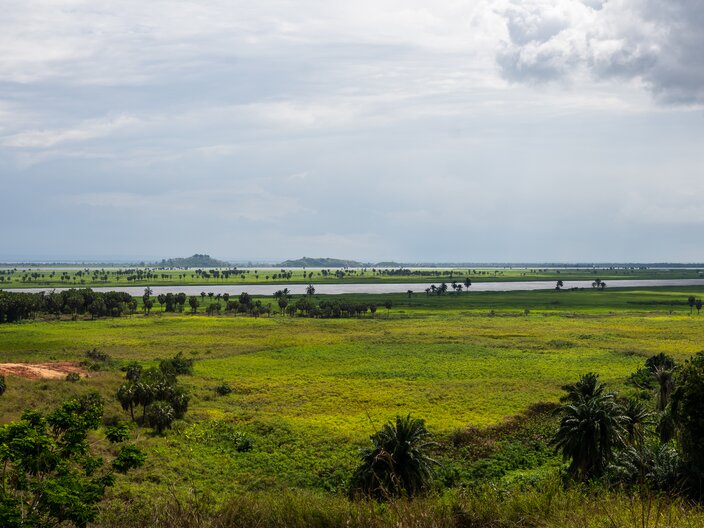After our arrival in Gabon, we looked for a place to stay not far from the border. We found it on a somewhat aging football field not far from a small village. Soon after our arrival, curious inhabitants from the village came to greet us and talk with us. Only very reluctantly did they accept our refusal of their invitation to spend the night in the village but insisted that we come to visit them the next morning.
No sooner said than done, we visited the village the next morning and got a glimpse inside a house. During our stay, more villagers gradually came to pay us a visit and give us gifts. These were mainly fruits from their gardens and forests. Overwhelmed by the hospitality of the people and packed with food, we set off to explore the country further.
Gabon
We were looking forward to driving 900kms on asphalted roads in the middle of the tropical rainforest and to the large number of national parks, which cover 11% of Gabon's land area. As soon as we arrived, we felt the warmth of the African people again.
On our journey from the north to the capital Libreville, we quickly realised that police checkpoints were a thing of the past for a while. We also no longer saw fences or walls enclosing people's houses.
If you drive from north to south in Gabon, you inevitably cross the equator, moving from the northern to the southern hemisphere. You are always surrounded by large green trees, which allow you to breathe more freely and easily. Gabon's tropical rainforest is the second largest of its kind after the Amazon in South America.
Heading south, our route followed the footsteps of Albert Schweitzer, a medical pioneer who was one of the first to study tropical diseases and provide medical care to local people.
Gabon is diverse in flora and fauna and is less populated than the average African country. It is hardly developed for tourism and offers travellers an insight into the original, unspoiled Africa.
A visit in rural Gabon
Libreville - the green capital
Of Gabon's slightly more than two million inhabitants, more than half live in the capital, Libreville. It is located by the sea and is very clean and green by West African standards. Most of the houses have some space surrounding them, which offers the people a better quality of life. Only the street names and house numbers in Libreville are not so precise, which made navigation a little more difficult. For us, it is one of the most beautiful, if not the most beautiful capital of western Africa.
On the trail of Albert Schweitzer
Almost a hundred years ago, a German-French physician, philosopher and theologian settled in Lambaréné in the heart of Gabon. He set himself the goal of researching tropical diseases and building a hospital in the tropical rainforest. Albert Schweitzer is considered a pioneer who set out for Africa with a medical mission at a time when the image of the primate in the jungle was the most dominant one among the people in his homeland. His work left its mark, both on the locals and on medical research.
At the on-site museum, you can follow in his footsteps and learn more about his life's work, which is still intact. Today, the hospital is still the place to go for the local population in case of illnesses, births and accidents.
Gabon's rainforest - the green lung
At the beginning of the millennium, 14 national parks were founded in Gabon on the initiative of a few environmental activists with the help of foreign support, which cover about 11% of Gabon's land area. They provide a habitat for many protected animals but also for plants. Many species have recovered within the national parks from earlier predatory human activities.
As beautiful as all this sounds, however, it is far from being so. Much of Gabon's land is licensed to foreign companies, which remove its precious natural resources, log them and transport them abroad without any consideration for damage done to the environment. For the wealth of a few people in the country, the livelihood of future generations is being sold off.
The protected national parks are spared in the process, but so far, they do not produce or safeguard anything. Park rangers who are specially trained to protect the animals often receive neither a salary nor a secure pension for months. The original inhabitants in the parks can no longer go about their normal daily lives and are restricted in their behavior. The planned ecotourism and the associated jobs for the local population have never been seriously developed.
The green lungs are gradually disappearing. Although there are regulations on which trees may be felled and that no complete clearing is carried out, there is also no reforestation plan. In the medium term, this leads to the disappearance of the tropical rainforest and additional social conflicts.
the unreal Lac Bleu
Located in the south of Gabon, on our way to the Congo border, we stopped at a somewhat surreal lake. The blue lake is literally over-blue. It is a spiritual place for the locals and is often visited for shamanic rituals.


